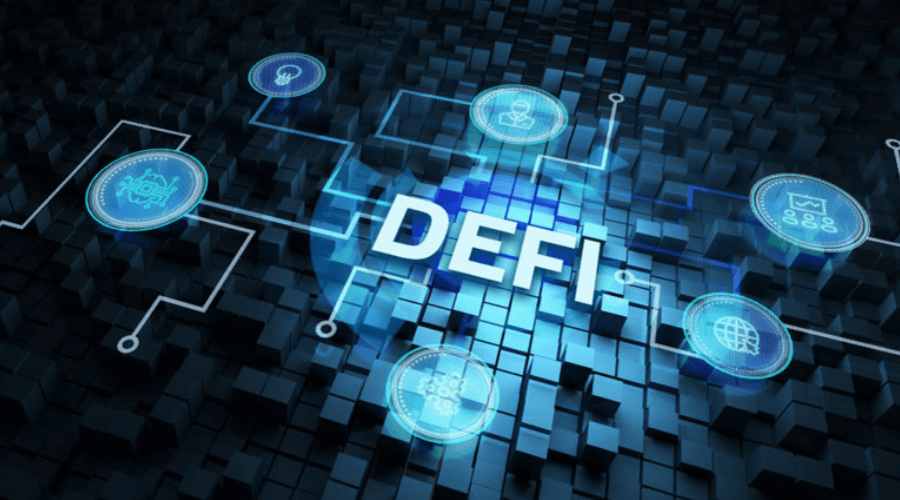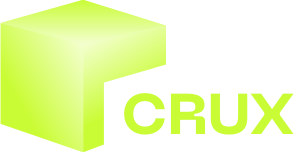
Understanding Smart Contracts and their Role in DeFi
- Cary
- June 5, 2023
- Defi
- Blockchain, Decentralized Finance, DeFi, Smart Contracts
- 0 Comments
Smart contracts have emerged as a transformative technology, revolutionizing the way agreements are made, executed, and enforced in various industries. In the realm of finance, particularly in the rapidly growing field of decentralized finance (DeFi), smart contracts play a pivotal role in enabling trustless, transparent, and efficient transactions. In this article, we will delve into the intricacies of smart contracts, explore their applications in DeFi, and understand their significance in the evolving financial landscape.
Introduction
Smart contracts, essentially self-executing contracts with the terms and conditions directly written into the code, have gained prominence with the rise of blockchain technology. DeFi, on the other hand, refers to the use of blockchain and cryptocurrency to recreate traditional financial systems in a decentralized manner, bypassing intermediaries. To comprehend the significance of smart contracts in DeFi, it is essential to understand how they work.
How smart contracts work?
At the core of smart contract lies blockchain technology, which provides a decentralized and immutable ledger for recording transactions. Smart contracts are written in code and stored on a blockchain. They contain predefined rules and conditions, enabling the automation of processes without relying on intermediaries. Once the conditions of a smart contract are met, the contract executes itself, facilitating secure and efficient transactions.
Key features of smart contract include transparency, immutability, and decentralization. Transparency is achieved through the public nature of blockchain, allowing anyone to view the code and transaction history. Immutability ensures that once a smart contract is deployed, it cannot be altered, guaranteeing trust and eliminating the need for third-party verification. Decentralization removes the need for a central authority, reducing the risk of manipulation or censorship.
Various platforms support the development and deployment of smart contracts, such as Ethereum, Binance Smart Chain, and Solana. These platforms provide a framework for developers to create and interact with smart contracts, enabling the development of decentralized applications (dApps) and DeFi protocols.
Benefits of smart contracts in DeFi
- Automation and Efficiency: Smart contracts automate processes that traditionally required intermediaries, streamlining operations and reducing costs. By removing the need for manual intervention, smart contracts facilitate fast and accurate execution of transactions, enhancing overall efficiency. This automation also enables the creation of innovative financial products and services that were previously unfeasible due to manual processes.
- Increased Security and Transparency: Blockchain-based smart contracts provide enhanced security and transparency compared to traditional systems. The decentralized nature of blockchain ensures that data is stored across multiple nodes, making it resilient to attacks and tampering. Additionally, the transparency of smart contracts allows participants to verify the terms and conditions of an agreement, minimizing the risk of fraud or misinterpretation.
- Removal of Intermediaries: One of the fundamental principles of DeFi is the elimination of intermediaries. Smart contract enable direct peer-to-peer transactions, removing the need for intermediaries such as banks or brokers. This disintermediation reduces costs, eliminates counterparty risk, and empowers individuals to have full control over their financial assets.
- Efficient and Transparent Governance: Smart contract can also facilitate decentralized governance in DeFi protocols. Through the use of voting mechanisms and pre-defined rules, participants can have a say in the decision-making process. This transparent governance structure ensures that the protocol evolves based on community consensus, promoting fairness and inclusivity.
- Global Accessibility: Smart contract in DeFi are accessible to anyone with an internet connection, regardless of their geographical location. This opens up opportunities for individuals who may have limited access to traditional financial services. DeFi protocols powered by smart contracts enable individuals to participate in lending, borrowing, trading, and earning rewards, providing financial inclusion on a global scale.
Use cases of smart contracts in DeFi

Smart contract find extensive use cases in the DeFi space, enabling a wide range of decentralized financial services. Some prominent applications include:
Decentralized lending and borrowing
Smart contracts facilitate peer-to-peer lending and borrowing without the involvement of traditional financial institutions. Users can lock their digital assets as collateral, and based on predefined conditions, borrow funds from the pool. Interest rates, collateral ratios, and repayment terms are all governed by the smart contract, ensuring trust and enabling individuals to access credit in a transparent and permissionless manner.
Automated market makers and decentralized exchanges
Smart contracts power automated market makers (AMMs) and decentralized exchanges (DEXs), enabling seamless trading of digital assets. These platforms leverage smart contracts to create liquidity pools and execute trades directly between participants, eliminating the need for a centralized order book or matching engine. Liquidity providers earn fees by contributing to the liquidity pools, while traders can exchange assets in a decentralized and non-custodial manner.
Yield farming and liquidity mining
Yield farming and liquidity mining have become popular DeFi strategies, allowing users to earn rewards by providing liquidity to protocols. Smart contract govern the distribution of rewards based on predefined rules, incentivizing users to contribute their assets to the ecosystem. Yield farming and liquidity mining have sparked innovation and growth in DeFi, attracting more participants and capital to the space.
Challenges and risks of smart contracts in DeFi
- Security Vulnerabilities: Smart contract, if not properly audited or secured, can be susceptible to vulnerabilities and exploits. Bugs or coding errors in the contract can lead to significant financial losses or unauthorized access to funds. It is crucial for developers to follow best practices, conduct thorough security audits, and implement standardized coding frameworks to minimize such risks.
- Regulatory Concerns: The decentralized nature of DeFi and smart contract raises regulatory challenges for governments and financial authorities. The lack of oversight and potential for illicit activities create a complex regulatory landscape that needs to strike a balance between innovation and consumer protection. Regulatory clarity and compliance frameworks are essential for the sustainable growth of DeFi.
- Lack of Standardization: With multiple smart contract platforms and DeFi protocols emerging, interoperability and standardization become crucial for the ecosystem’s long-term viability. Ensuring compatibility and seamless interaction between different platforms and protocols will enhance usability, reduce fragmentation, and promote innovation across the DeFi space.
- Smart Contract Complexity: Smart contracts can be complex, especially for individuals with limited technical knowledge. The intricate code and conditional logic can make it challenging for users to understand the risks and implications associated with a particular contract. Proper education, user-friendly interfaces, and improved user experience are necessary to ensure safe and responsible use of smart contracts.
- Scalability and Network Congestion: As the popularity of DeFi grows, scalability becomes a significant challenge. Blockchain networks may face congestion, resulting in higher transaction fees and slower transaction processing times. Scalability solutions, such as layer 2 solutions and improved network infrastructure, are being explored to address these challenges.
- Oracle Reliability: Smart contracts in DeFi often rely on oracles to fetch external data, such as price feeds, for decision-making. However, the reliability and security of oracles can be a concern. Malicious or incorrect data provided by oracles can lead to inaccurate execution of smart contracts and financial losses. Improving oracle security and exploring decentralized oracle solutions are crucial steps to mitigate this risk.
Future prospects and innovations in smart contracts and DeFi
As the DeFi ecosystem continues to evolve, several prospects and innovations are being explored to overcome current limitations and unlock new possibilities. Some notable areas of development include:
Layer 2 solutions and scalability
Layer 2 solutions aim to address the scalability issues faced by existing blockchain networks. By leveraging sidechains or off-chain mechanisms, these solutions enhance transaction throughput and reduce fees, making DeFi applications more accessible to a wider audience. Layer 2 solutions such as rollups and state channels enable faster and more cost-effective smart contract execution.
Integration with traditional finance
As DeFi gains traction, efforts are underway to bridge the gap between decentralized and traditional finance. Integrating smart contracts with existing financial infrastructure can enable the seamless transfer of assets between centralized and decentralized systems, opening up new avenues for liquidity and investment opportunities.
Cross-chain interoperability
With the proliferation of blockchain networks, achieving interoperability between different chains becomes crucial. Cross-chain smart contracts allow the exchange of assets and data across disparate blockchain networks, fostering collaboration and creating a more connected and efficient DeFi ecosystem.
Conclusion
Smart contracts are revolutionizing the financial landscape by enabling transparent, automated, and efficient transactions in the realm of decentralized finance (DeFi). Through the power of blockchain technology, smart contracts eliminate the need for intermediaries, increase security and transparency, and unlock innovative financial services. While challenges and risks exist, the future of smart contracts in DeFi looks promising, with ongoing developments focused on scalability, interoperability, and integration with traditional finance. It is an exciting time to explore and participate in the DeFi ecosystem, where individuals have greater control and access to a new era of decentralized financial services.
FAQs (Frequently Asked Questions)
What are smart contracts?
Smart contracts are self-executing contracts with the terms and conditions directly written into the code. They facilitate trustless and automated transactions without the need for intermediaries.
What is DeFi?
DeFi, or Decentralized Finance, refers to the use of blockchain and cryptocurrency to recreate traditional financial systems in a decentralized manner, removing intermediaries and enabling permissionless access to financial services.
Which blockchain platforms support smart contracts?
Ethereum, Binance Smart Chain, and Solana are some of the prominent blockchain platforms that support the development and deployment of smart contracts.
What are some popular use cases of smart contracts in DeFi?
Decentralized lending and borrowing, automated market makers and decentralized exchanges, and yield farming are some popular use cases of smart contracts in DeFi.
What are the challenges associated with smart contracts in DeFi?
Security vulnerabilities, regulatory concerns, and lack of standardization are some of the challenges that need to be addressed for wider adoption of smart contracts in DeFi.


